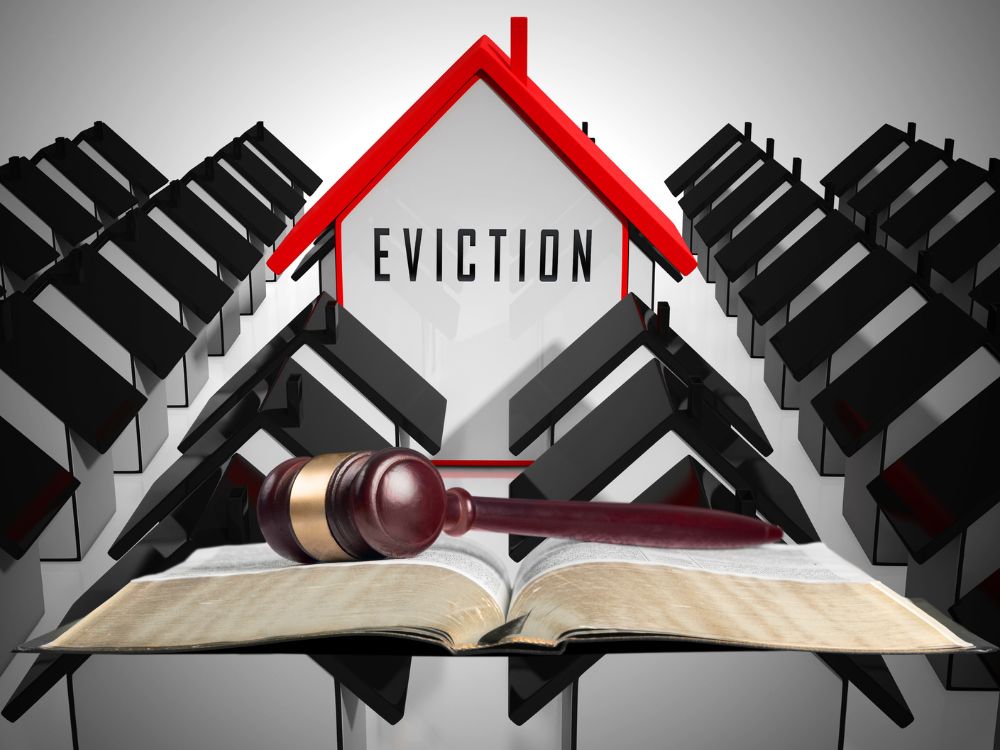Proposed Texas Legislation Could Transform Eviction Processes: What Renters and Landlords Need to Know

A new bill, House Bill 32 (HB 32), is making waves in Texas as it proposes significant changes to the state’s eviction procedures. While initially aimed at addressing issues related to squatters, the bill’s provisions could have far-reaching implications for both landlords and renters across the state, including the Dallas-Fort Worth (DFW) metro area.
Key Changes Proposed in HB 32
Under current Texas law, the eviction process includes specific steps designed to protect the rights of both landlords and tenants. However, HB 32 introduces several notable changes:
- Elimination of Notice to Vacate: Landlords would no longer be required to provide a three-day notice to vacate for reasons other than non-payment of rent. This means that for lease violations such as unauthorized smoking or pet ownership, landlords could initiate eviction proceedings immediately without prior notice.
- Summary Judgments: The bill allows landlords to request a summary judgment if they assert that there are “no genuinely disputed facts” in the case. This could lead to eviction cases being decided without a trial, potentially limiting tenants’ opportunities to present their defenses.
- Filing Evictions in Adjacent Precincts: Landlords would have the option to file eviction cases in precincts adjacent to where the property is located. This could pose challenges for tenants, especially those without reliable transportation, as they may need to travel longer distances to attend court proceedings.
Implications for Renters and Landlords in DFW
The DFW metro area, known for its rapid growth and diverse population, could experience significant impacts if HB 32 is enacted:
- Renters: The proposed changes may reduce the time tenants have to address lease violations or prepare for eviction proceedings. The possibility of summary judgments without a trial could also limit tenants’ ability to contest evictions, potentially leading to increased housing instability.
- Landlords: Property owners may find the eviction process more streamlined, allowing for quicker resolution of lease violations. However, the ability to file in adjacent precincts could lead to inconsistencies in how eviction cases are handled across different jurisdictions.

It could reshape the landscape for both renters and landlords. Understanding these updates is crucial to ensuring fair practices, protecting tenant rights, and maintaining healthy landlord-tenant relationships.
Concerns Raised by Advocates and Legal Experts
Several groups have expressed concerns regarding HB 32:
- Tenant Advocates: Organizations argue that the bill could strip tenants of essential due process rights, making it easier for landlords to evict without sufficient cause or notice.
- Judges and Lawyers: Legal professionals worry that the bill may erode judicial authority and limit access to justice for tenants, particularly those who are low-income or lack legal representation.
Looking Ahead: Staying Informed and Prepared
As HB 32 progresses through the legislative process, it’s crucial for both renters and landlords in the DFW area to stay informed:
- Renters: Understand your rights and responsibilities under current and potential new laws. Consider seeking legal advice if facing eviction or lease disputes.
- Landlords: Stay updated on legislative changes to ensure compliance and fair practices in property management.
Stay ahead in the dynamic DFW real estate market. Subscribe to our newsletter for expert insights, local trends, and helpful tips delivered straight to your inbox. Whether you’re a first-time buyer, seasoned investor, or just exploring your options, we’re here to guide you every step of the way. Have questions or ready to take the next step? Call or message us today — we’re committed to helping you find your perfect place in Dallas-Fort Worth.





